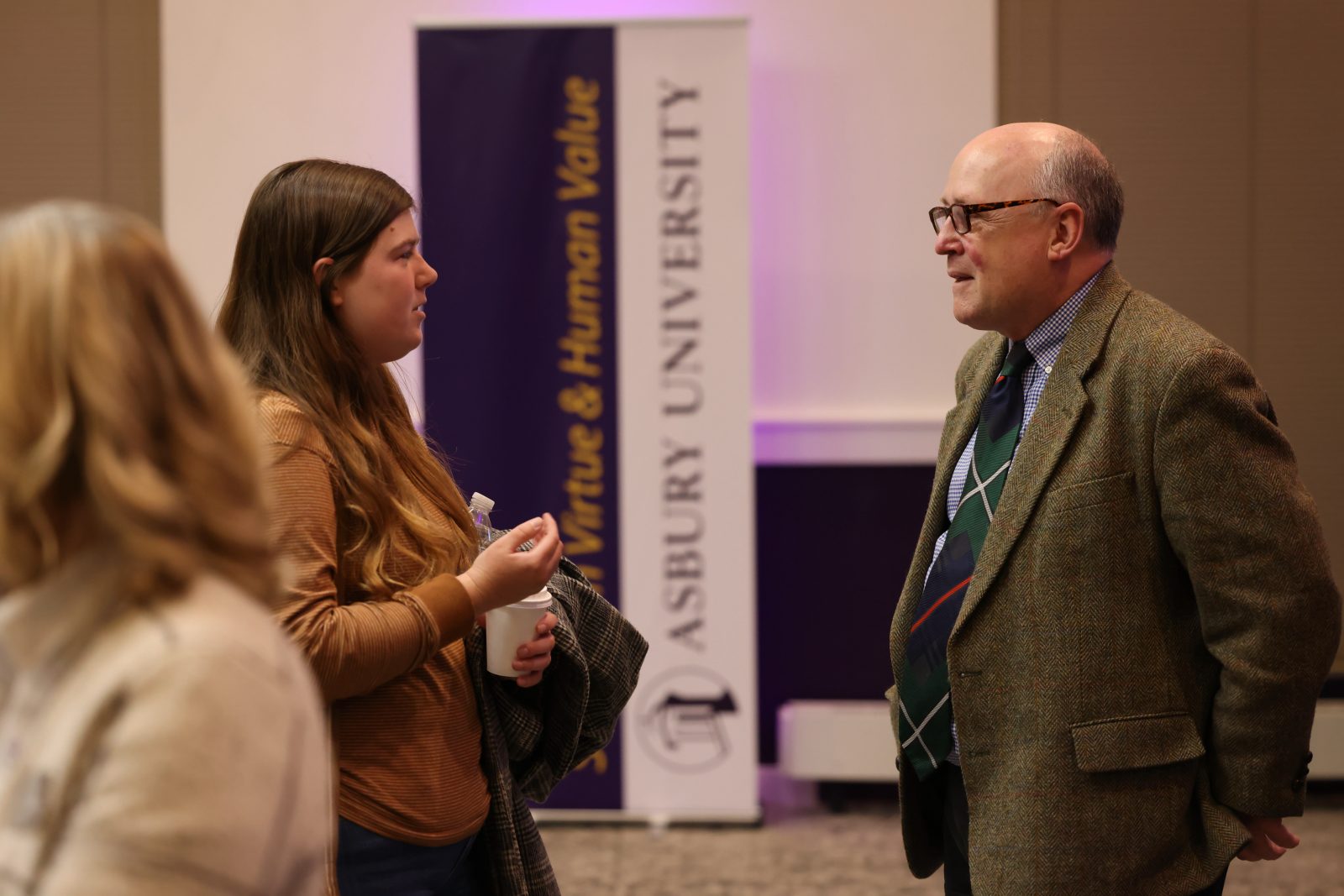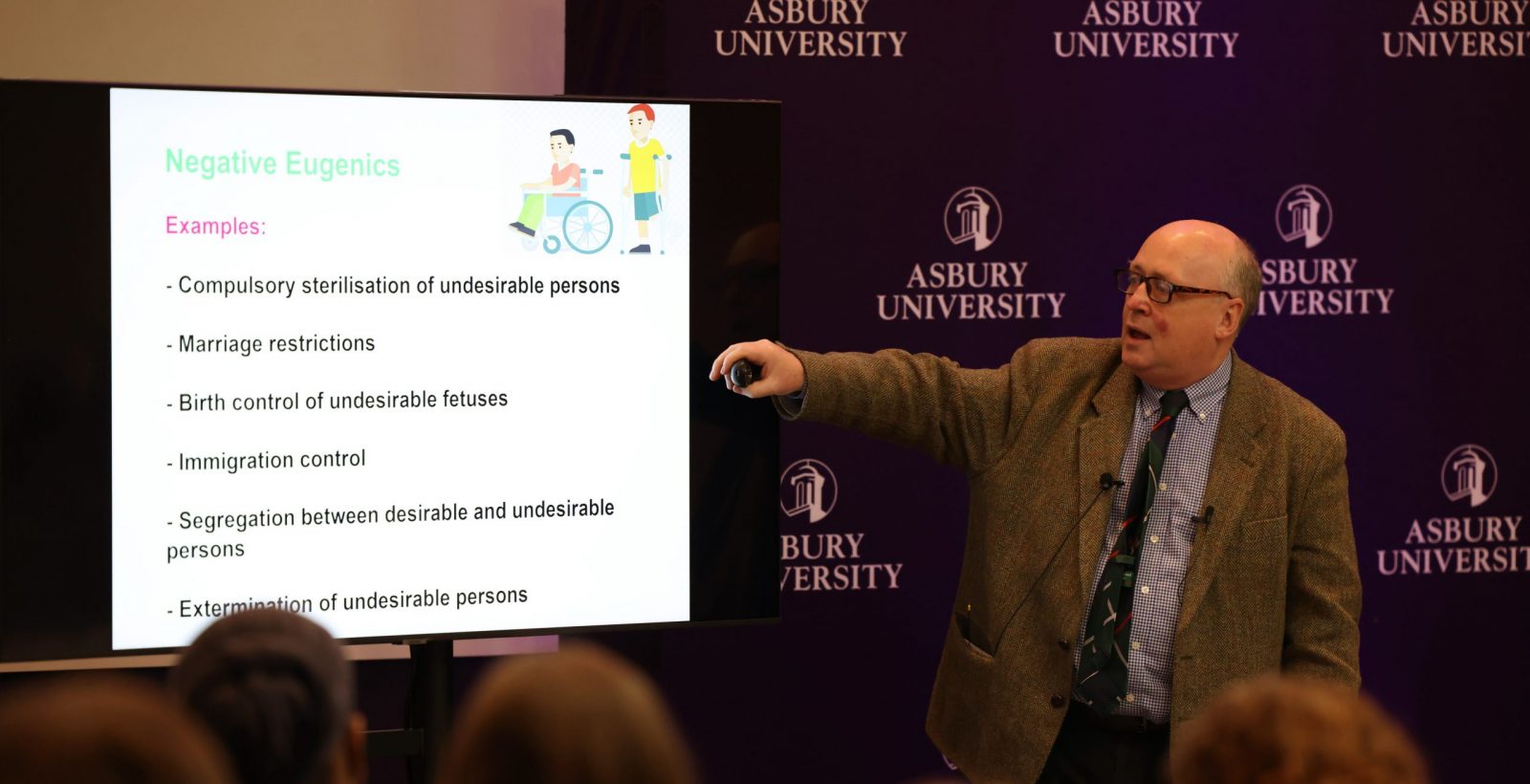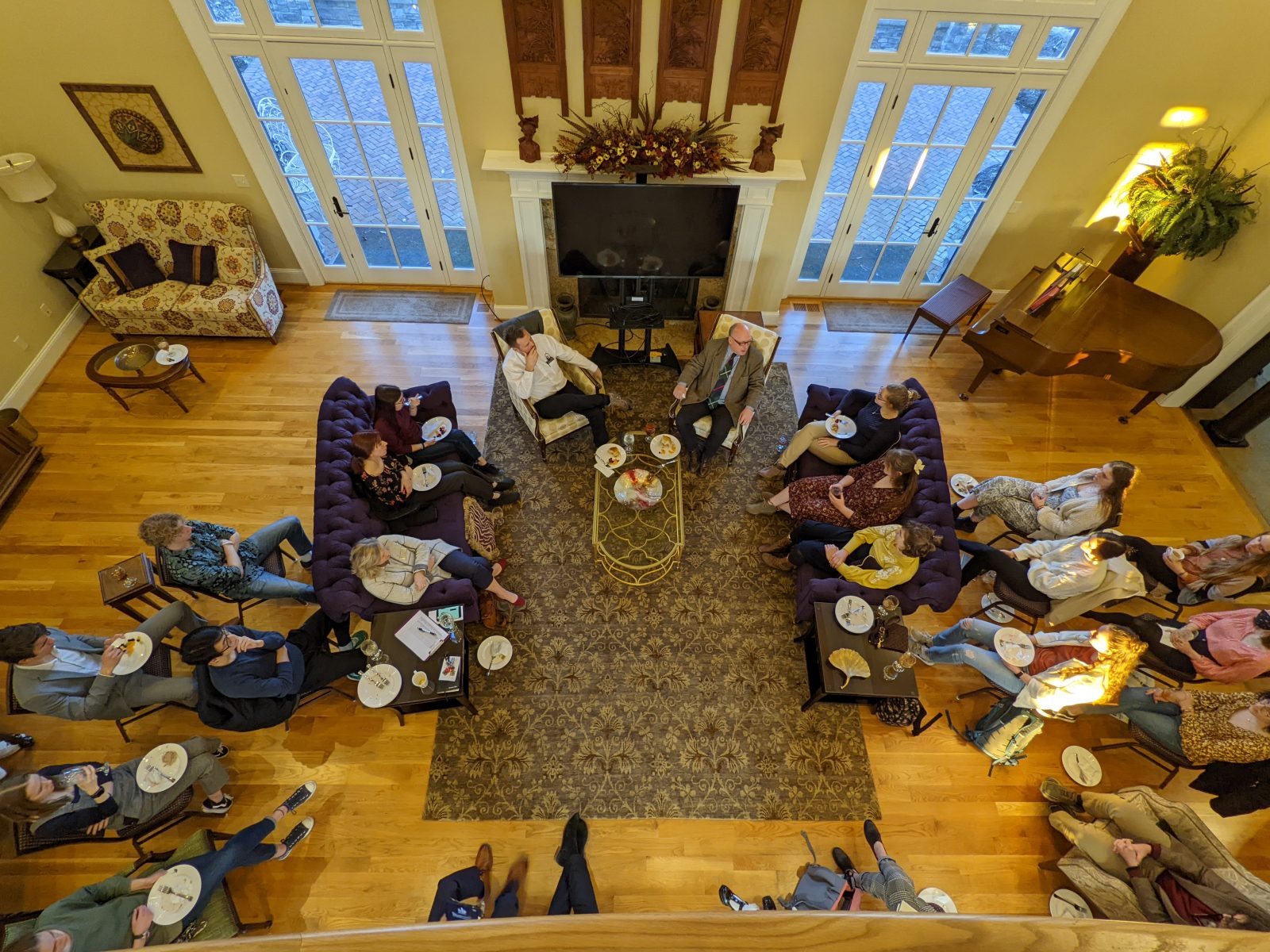A Few Reflections from Our Human Dignity Lecture Presenter
After Dr. MacKellar’s presentation to our campus and fireside chat with the Asbury University Honors Program students (see: Resurrecting Eugenics: Should Only Healthy Children be Born), he provided some further thoughts via an interview. Here is the transcript of that exchange.

Q: What gives people value?
The value and worth of a human being can only come from the reality that God created each human being in his image. And he created them from the immeasurable love present in the “Triunity.” Each human being was created by God from his love, to be loved, so that they can also love God and others.
Without God, human beings are just piles of cells destined to become, in 150 years’ time, piles of dust or ashes.
Q: What are the implications of finding value in ourselves and others?
I do not believe we find value and worth in ourselves or others but we recognize the value and worth, that comes from God, in ourselves and others. And if everyone is created in the image of an amazing and wonderful God then this gives all human beings an immeasurable worth and value. As a result, we must have an incredible respect and concern for ourselves and all others (no matter who they are).
But from one perspective, it may be correct that we give value to others and receive value from others (in relationships of love, care and respect). Moreover, the value we give to others is the value we receive from others. In a way, this creates a kind of value giving and receiving ‘network’ which is somewhat similar to an electrical network (grid) in country. In this comparison, God would be the generator of value in the network in a similar way a power plant would be the generator of electricity in the network/grid.
But if we believe in God, all the persons in the value-network will also be valued directly by God in addition to being valued (hopefully) by all persons in the network. And if one does not believe in God, problems arise when an individual decides to take himself or herself out of the value giving/receiving network or refuses to recognize the value a person already has in the network.

Q: Why is it important for us to consider questions such as these?
The questions relating to the value and worth of all persons are crucial for bioethics and the survival of a civilized society. Even the concept of inherent equality in a civilized society is based on the fact that all human beings are created with the same image of God which also gives them immeasurable worth. In addition, as indicated by John Kilner in the conclusion of the book on embryos which I prepared: ‘Destroying someone in God’s image, in light of God’s connection with humanity, is tantamount to attacking God personally.’[1] Moreover, because of the deep commitment of love that God has given to his image, he has also opened himself up to being vulnerable with this image. This also means that because God’s throne in heaven is indestructible and totally secure, the only war against God that is possible to human beings is a war against his image.[2] And this is exactly what is happening on many different fronts in bioethics.
Q: Why is there such confusion relating to defining “human dignity?”
The Oxford English Reference Dictionary defines dignity as the ‘state of being worthy of honour and respect’ although the concept also includes aspects of ‘value’ and ‘worth’. Interpreting the concept of human dignity, however, remains a challenge for many commentators working in the field of bioethics since no clear or robust definition exists. But, at the same time, this lack of any clear description of the concept has sometimes been used in a positive manner in order to find common ground when a more complete meaning may have divided public discourse and damaged consensus where unity was desirable. This happened, for example, in the preparation of a number of international bioethics conventions and declarations, such as the UN’s Declaration of Human Rights.
Still, because of the confusion around the notion of dignity, some bioethicists have maintained that the concept is not useful, meaningful or relevant. For instance, some have argued for a bioethics discourse where dignity does not play any role. This was suggested for the following reasons. First, human dignity is very difficult to define or clarify; secondly, it is often used in a reactionary manner as a moral trump card to limit advances in medicine; and finally, human dignity can be considered surplus to requirement since it simply reflects notions which are already recognized in ethical principles and provisions, such as respect for autonomy. But others strongly disagree with this representation of human dignity, maintaining that the concept is crucial to understanding certain arguments in a number of bioethical discussions. Some even affirm that such dignity is the only solid foundation to human ethics, human rights and bioethical legislation.
Q: Why is human dignity so important?
If the equal and inherent human dignity of all persons is undermined in society, meaning that all individuals are no longer equal in value and in worth, society will cease to be a civilized society.
Actually, I have written a chapter about some of the above in the edited volume entitled Human Dignity in the Judaeo-Christian Tradition, see: https://www.bloomsbury.com/uk/human-dignity-in-the-judaeochristian-tradition-9781350073692/

Look for more interviews coming soon. Dr. Richard Weikart, Emeritus Professor of History at CSU Stanislaus, will be featured later in the spring.
[1] John F. Kilner, 2015, Dignity and Destiny: Humanity in the Image of God, Grand Rapids: Eerdmans, p. 319.
[2] William E. Channing, 1841, ‘Spiritual Freedom’, in: ‘The Works of William E. Channing’, 4:76, Boston: James Monroe.